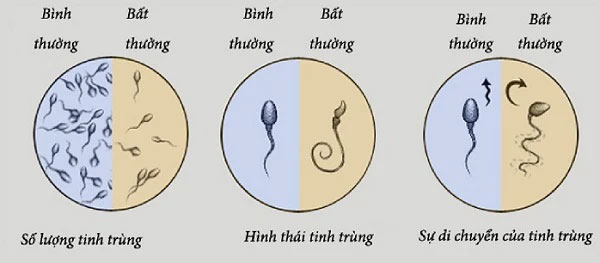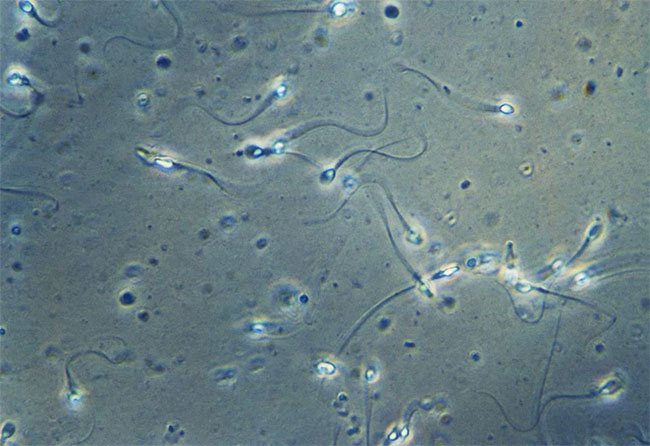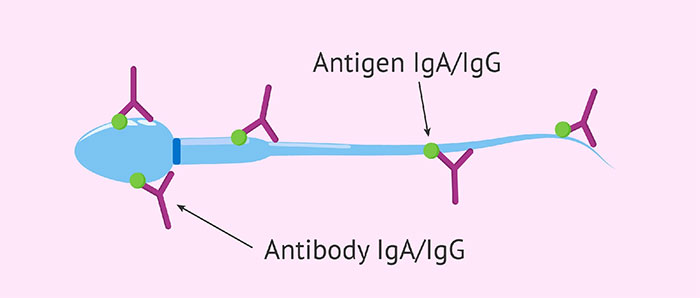A recent study published in the journal Fertility and Sterility indicates that Covid-19 infection may reduce both the quantity and quality of sperm in men. One in two men who contracted Covid-19 and recovered from the illness—regardless of whether they had mild symptoms, were healthy, or were young—experienced this condition.
Researchers reached this conclusion after monitoring 120 men in Belgium who were infected with the SARS-CoV-2 virus for over two months after they recovered and tested negative.
The results showed that 60% of these men experienced reduced sperm motility in the first month after recovery. Furthermore, 37% continued to experience this damage into the second month, and 28% still had diminished sperm quality even after more than two months of recovery.
In terms of sperm count, there was a decrease in 37% of men who recovered within one month, 29% within two months, and 6% of those who had recovered for more than two months.
The authors of the study noted that sperm count and motility may continue to decline for a longer period in men infected with Covid-19. They will continue to monitor these individuals and update results as new data becomes available.
“We estimate that the recovery period could be three months. However, further studies are underway to confirm this and determine whether permanent damage occurs in a small number of men infected with Covid-19,” the study’s results stated.
Sperm Quality of Some Covid-19 Patients Below WHO Standards Even After Recovery
As we know, sperm count and motility are two critical factors that determine fertility, or in other words, male reproductive capability. Low sperm count and poor motility can lead to male infertility.
“Couples wishing to conceive should be warned that the quality of sperm in men after contracting Covid-19 may be below optimal levels,” the study indicated.
The optimal levels are defined by the standards set by the World Health Organization (WHO). Specifically, these parameters include: at least 39 million sperm per ejaculation, a sperm concentration of over 15 million/ml of semen, more than 58% of sperm being alive (meaning the cell membrane is intact), at least 40% of sperm being motile or 32% swimming forward, and at least 4% of sperm having a normal shape.
If your semen analysis meets these standards, it means you have normal reproductive health. However, the study monitoring men with Covid-19 after two months showed that some still had values below the standard.

Before you say, “Oh, but Covid-19 only really affects older people,” remember that most men in this study were relatively young. Their average age was 34.7 years, ranging from 18 to 69 years.
The majority of participants were relatively healthy, with only 16 having underlying conditions that put them at greater risk for severe Covid-19. Eight of the study participants reported having fertility issues prior to the study.
Most of these men did not experience severe Covid-19. Only five were hospitalized, two required admission to intensive care, and one needed a ventilator.
Why Do Men’s Sperm Levels Decline After Covid-19 Infection?
Initially, scientists thought that Covid-19, like previous viral infections, caused fever in men. Prolonged hyperthermia has been known to reduce sperm count and quality.
However, study results show that even in men infected with Covid-19 who did not exhibit fever symptoms, their sperm count and quality were still diminished. There is no evidence that more severe Covid-19 leads to a greater decline in sperm quality and vice versa.
“This suggests that there must be other mechanisms beyond fever affecting how Covid-19 damages the sperm of infected men,” researchers stated.

Most of these men did not experience severe Covid-19.
To find out what those mechanisms might be, they tested for the presence of antibodies against sperm in the semen of men who had recovered from Covid-19.
The presence of antibodies against sperm occurs when the immune system overreacts and mistakenly identifies sperm in the semen as an invading pathogen. As a result, the antibodies attack or attempt to neutralize the sperm.
Test results from the study revealed that many men recovering from Covid-19 had IgA and IgG antibodies binding to the tails of their sperm. At least 14 participants in the study had 10-40% of their sperm affected by these antibodies, enough to damage reproductive capability.
One individual even had antibodies binding to more than 40% of his sperm. This condition led him to experience what is known as immune-mediated infertility, researchers reported.

Antibodies against sperm may affect male reproductive health after Covid-19 infection.
The most encouraging signal from this study was that scientists did not find evidence that the SARS-CoV-2 virus could cross the blood-testis barrier during the non-acute phase of the illness.
This means that the virus cannot appear in semen and be transmitted sexually. This finding alleviates previous concerns that the SARS-CoV-2 virus could invade the testes through ACE-2 receptors as it did with the lungs.
Researchers also did not find any impact of Covid-19 on the morphology of sperm. This means that the disease does not appear to produce deformed sperm.


















































